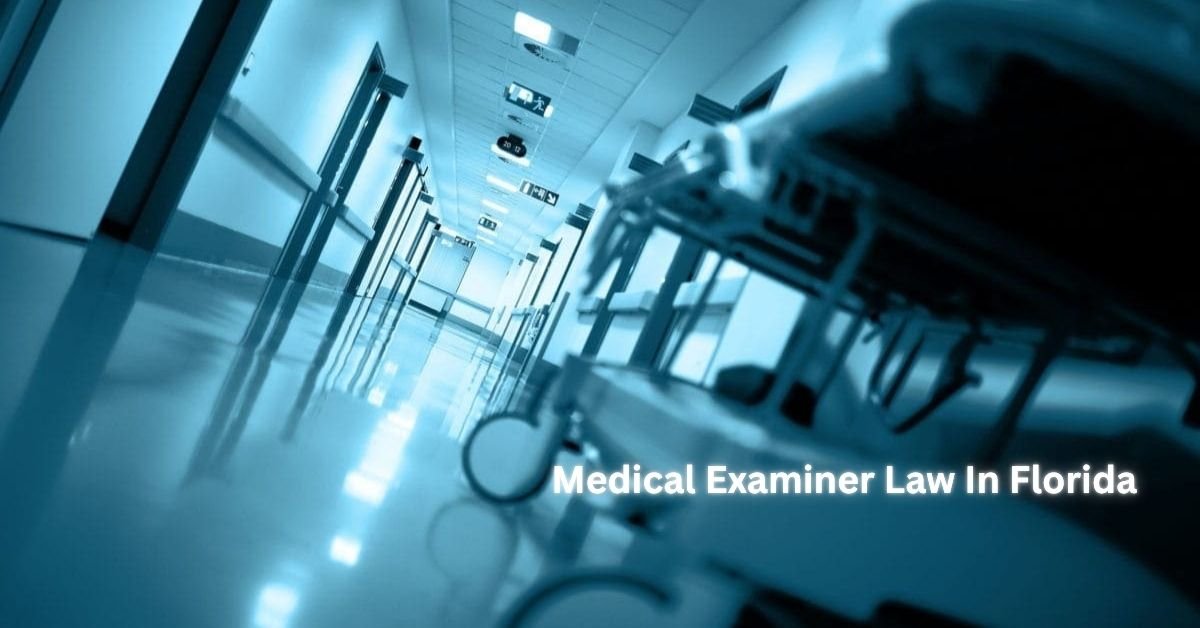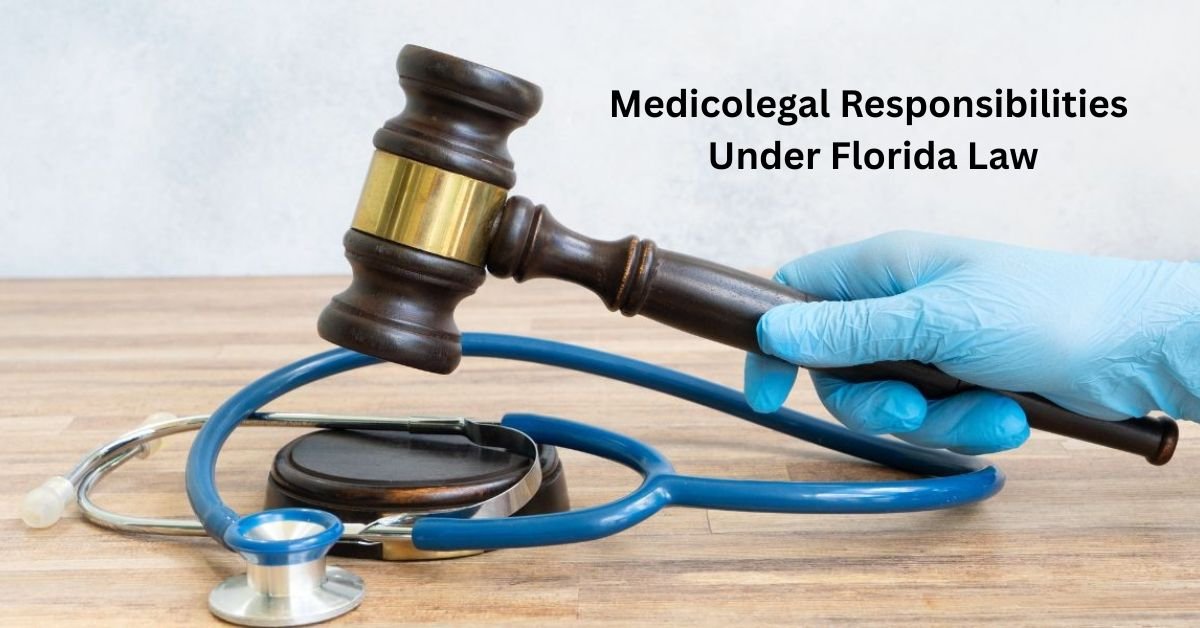In the state of Florida, medical examiners are vital components of the medicolegal system, empowered by statute to investigate deaths that occur under specific legal and medical circumstances. Their authority extends beyond forensic pathology into public health, legal investigations, and the judicial process. This article explores the legal role of the medical examiner in Florida, referencing key statutory provisions, responsibilities, and interactions with other state entities.
1. Statutory Basis for Medical Examiner Authority
The legal authority of Florida’s medical examiners is established under Chapter 406, Florida Statutes, titled Medical Examiners; Disposition of Human Remains. This chapter delegates the responsibility for conducting death investigations, certifying causes of death, and maintaining records to a statewide network of district medical examiners.
Key Legal Provisions:
| Statute | Scope |
|---|---|
| §406.04, F.S. | Establishes the Medical Examiners Commission |
| §406.06, F.S. | Authorizes the appointment and qualifications of district MEs |
| §406.11, F.S. | Specifies deaths requiring medical examiner investigation |
| §406.13, F.S. | Addresses death certificate issuance and reporting |
These statutes grant medical examiners both investigative authority and a legal duty to determine the cause and manner of deaths falling under their jurisdiction.
2. Jurisdiction of Medical Examiners
Under §406.11, F.S., a medical examiner must investigate the following types of deaths:
- Suspected criminal violence
- Accidents, suicides, or deaths of sudden or unexplained nature
- Deaths of individuals in state custody or correctional facilities
- Deaths without recent medical attendance
- Deaths constituting a threat to public health (e.g., infectious disease outbreaks)
- Fetal deaths under suspicious or traumatic circumstances
The medical examiner’s jurisdiction is mandatory once a death falls within these parameters. The statute supersedes any claims of jurisdiction by other medical or legal professionals.
3. Appointment and Oversight
Florida’s medical examiners are appointed by the Medical Examiners Commission (MEC), a division of the Florida Department of Law Enforcement (FDLE), as outlined in §406.06, F.S. Candidates must be licensed physicians in Florida and typically hold board certification in forensic pathology.
The MEC:
- Approves medical examiner appointments and reappointments
- Conducts performance audits and reviews complaints
- Establishes minimum standards for office operations and reporting
There are 25 medical examiner districts in Florida, each serving one or more counties and governed locally but subject to state oversight.
4. Legal Duties and Responsibilities
The role of the medical examiner extends into multiple domains of law, including criminal, civil, and administrative matters. Their core legal responsibilities include:
A. Cause and Manner of Death Determination
The medical examiner performs autopsies, scene investigations, and toxicology reviews to determine the cause (medical reason) and manner (e.g., natural, accident, homicide) of death. These findings form the basis for:
- Death certificate issuance (§406.13, F.S.)
- Criminal investigations and prosecutions
- Insurance and civil litigation outcomes
B. Evidence Handling and Chain of Custody
Medical examiners collect and preserve forensic evidence during autopsies. Their office must maintain detailed chain-of-custody records to ensure legal admissibility in court.
C. Expert Witness Testimony
Under §90.702, F.S., Florida follows the Daubert Standard for expert testimony. Medical examiners may be called to:
- Testify in criminal trials regarding autopsy findings
- Provide opinions in civil cases (e.g., wrongful death)
- Submit depositions and sworn affidavits
Their status as expert witnesses carries significant legal weight.
5. Interactions with Legal and Governmental Entities
Florida’s medical examiners frequently coordinate with:
| Agency | Interaction Type |
|---|---|
| State Attorneys’ Offices | Provide forensic reports and courtroom testimony |
| Law Enforcement Agencies | Collaborate during death scene investigations |
| Florida Department of Health | Submit death data and issue certified death records |
| FDLE and MEC | Participate in audits, training, and interagency reporting |
| Courts (Criminal and Civil) | Serve as expert witnesses in trials and hearings |
This cross-agency collaboration ensures the legal and procedural integrity of death investigations.
6. Confidentiality and Public Records Compliance
Medical examiners are subject to Florida’s public records laws but must balance transparency with confidentiality. Certain records may be exempt from public disclosure, including:
- Autopsy photographs (§406.135, F.S.)
- Records involving minors or sexual offenses
- Ongoing criminal investigations
Access to such records may be granted only by court order or to specified individuals under law.
7. Public Health and Emergency Response Role
Beyond criminal cases, medical examiners play a legal role in public health surveillance and disaster response. In mass fatality events (e.g., hurricanes, pandemics), their duties include:
- Identifying decedents
- Coordinating with emergency management teams
- Reporting trends in unnatural or epidemic-related deaths
These actions are mandated by both state law and federal emergency protocols.
Conclusion
The legal role of the medical examiner in Florida is multifaceted, combining statutory authority with scientific responsibility. Governed by Chapter 406, Florida Statutes, and regulated by the Medical Examiners Commission, medical examiners serve as both public health officials and forensic legal experts. Their findings influence criminal prosecutions, civil litigation, and public policy—making them indispensable to Florida’s medicolegal and judicial systems.
References
- Florida Statutes, Chapter 406: https://www.leg.state.fl.us
- Florida Medical Examiners Commission (MEC): https://www.fdle.state.fl.us/MEC
- Florida Department of Health: https://www.floridahealth.gov
- Florida Rules of Evidence (§90.702, F.S.): https://www.leg.state.fl.us/statutes










